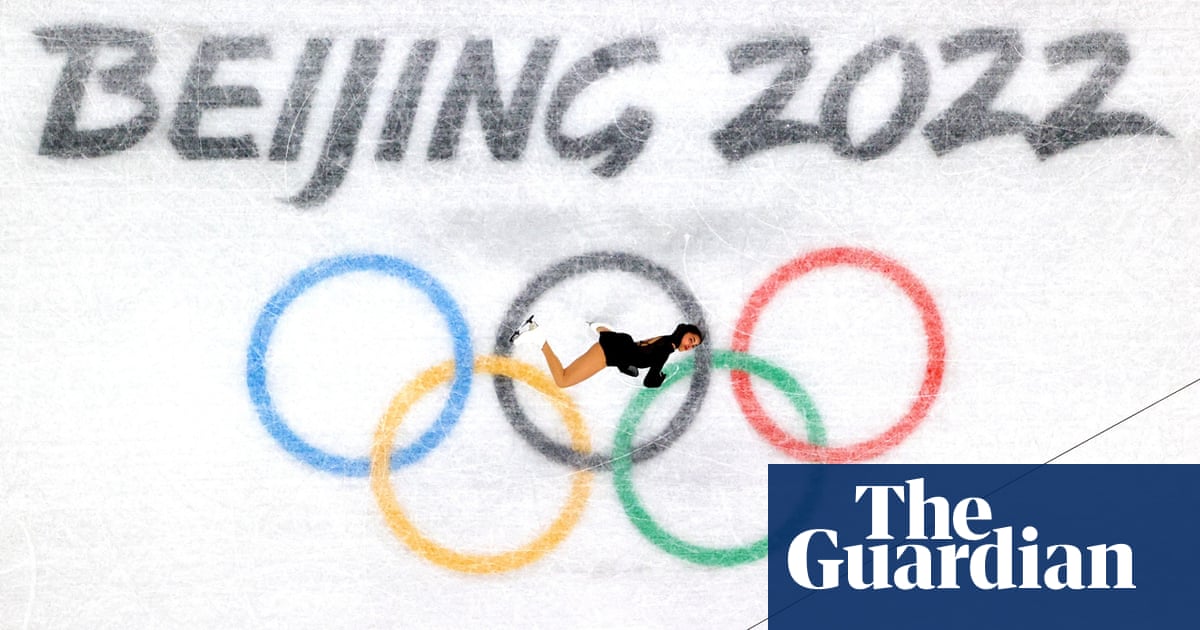Show caption Jackie Chan with schoolchildren after participating in a leg of the Beijing 2022 Winter Olympics torch relay at the Great Wall on Thursday. Photograph: Kevin Frayer/Getty Images China ‘Nobody can say anything’: China cracks down on dissent ahead of Olympics Communist party tightens grip on critics to preserve ‘perfect’ image of Winter Games Chris Horton in Taipei Thu 3 Feb 2022 05.09 GMT Share on Facebook
Share on Twitter
Share via Email
A chill is blowing through Chinese civil society as activists, journalists and academics report receiving police warnings and censorship of their social media platforms in recent weeks as Beijing prepares to host the Winter Olympics beginning on Friday.
In mid-January, the Beijing-based human rights activist Hu Jia said in a tweet that China’s state security apparatus was summoning activists around the country to question them and warn them to stay silent.
The author Zhang Yihe and prominent journalist Gao Yu said they had lost some or all of their access to WeChat, China’s dominant social media platform. Academics including Guo Yuhua, the outspoken Tsinghua University sociologist, and He Weifang, the Peking University law professor, reported similar issues.
Ahead of the Games, authorities also detained two prominent human rights activists: the lawyer Xie Yang and writer Yang Maodong. They are held on suspicion of “inciting state subversion”. A third rights lawyer, Tang Jitian, went missing in December en route to an EU human rights day event in Beijing.
Such behaviour by China’s government may be a regular ritual for any big event, analysts and activists say, but the 2022 Winter Olympics will be the most tightly managed international event China has held in the last few years.
“There’s nothing really unexpected about this,” said Wang Yaqiu, a senior China researcher at Human Rights Watch, who added that China’s Communist party was worried that online criticism by Chinese citizens could ruin “the facade of the perfect Games”.
Although not unexpected, Beijing’s approach to this year’s Games is even stricter than when it hosted the Olympics in 2008, when Wang was a university student.
“Back then we could criticise the Olympics; now nobody can say anything,” she said, adding that she had seen a noticeable uptick in Chinese citizens complaining about their social media posts disappearing.
Hu agreed with Wang. “Right now, as far as sensitive terms inside China go, ‘Winter Olympics’ is second only to ‘Xi Jinping’,” Hu said. “No criticism by citizens is being permitted.”
International criticism of the Games is the highest since the 2014 Winter Games, which were held in the Russian city of Sochi. Russia’s suppression of LGBT rights drew condemnation, and the International Olympic Committee (IOC) spoke up at the time.
This year, the IOC has not had a critical word for Beijing. Its president, Thomas Bach, is accused by critics of helping China’s efforts to silence the tennis star Peng Shuai, who disappeared in November last year after accusing a top Communist official of sexual assault. Bach spoke to Peng via video link after a global outcry and the release of short videos purportedly of Peng going about daily life that appeared to be staged. Afterwards, he repeated her reassurances that she was fine, despite questions about her freedom that remain unanswered.
“At least during Sochi the IOC spoke up for LGBT rights,” Wang said. “Now they’re part of the Chinese government’s propaganda machine.” Dick Pound, a senior IOC official, has described accusations that the organisation is aiding the Communist party’s propaganda efforts as “silly”.
Hu, who was imprisoned for his activism during the 2008 Games, said he was disappointed by what he views as IOC complicity in Chinese human rights abuses and the Communist party’s legitimacy. That disappointment was amplified by the fact that a previous Olympics had helped push neighbouring South Korea from dictatorship to democracy. Seoul hosted the 1988 Games.
“I was locked up for three-and-a-half years in 2008 – at that time I hoped the Olympic spirit of openness, equality and peace would drive the democratisation of China the way it did in South Korea in 1988,” Hu said.
Instead, the legitimacy and prestige of the 2008 Beijing Games emboldened the Communist party, which has cracked down on dissent in Xinjiang, Tibet and Hong Kong since then.
“The human rights abuses associated with the Beijing Winter Olympics are far worse than those connected to the Games 14 years ago,” Hu said.
